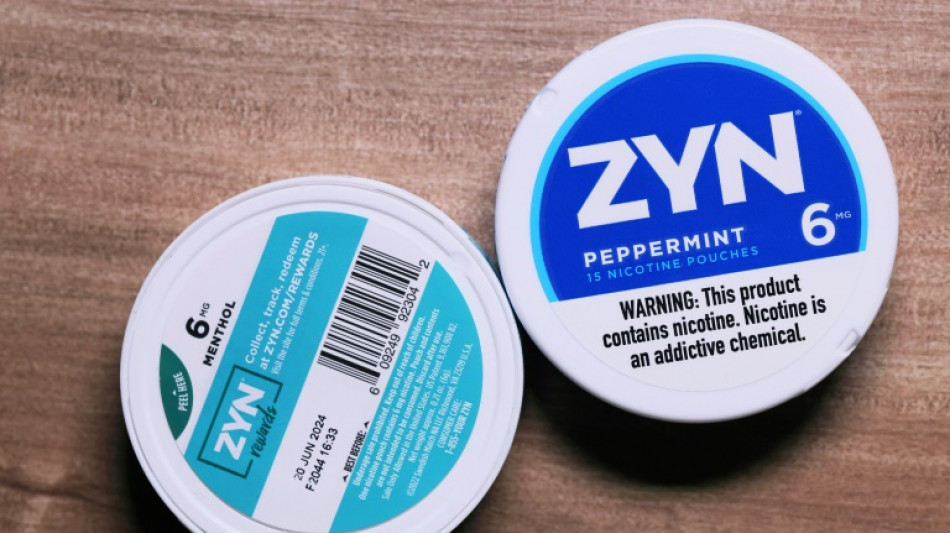
Nicotine pouches rise in popularity as US youth tobacco use hits 25-year-low

Nicotine pouches have overtaken cigarettes in youth popularity, as tobacco product use among US middle and high schoolers dropped to its lowest level in a quarter of a century, according to official data released Thursday.
The pouches -- which are placed in the mouth to allow direct absorption into the bloodstream -- were used by 1.8 percent of all students in 2024, compared to 1.5 percent in 2023, according to the data from the Centers for Disease Control and Prevention (CDC).
That made them the second most popular product after e-cigarettes, which counted 5.9 percent of youth as users, retaining its leading position for an 11th year in a row.
Although nicotine pouches were introduced a decade ago and are legally restricted to individuals aged 21 and older, they have become a youth trend, heavily promoted on social media by "Zynfluencers" -- a play on the name of the top-selling brand, Zyn.
The CDC hailed the decline of tobacco products overall, which it credited to factors such as price hikes, mass media campaigns, and comprehensive smoke-free policies that include e-cigarettes.
"Reaching a 25-year low for youth tobacco product use is an extraordinary milestone for public health," said CDC's Deirdre Lawrence Kittner.
"However, with more than two million youth using tobacco products and certain groups not experiencing declines in use, our mission is far from complete."
In 2024, 2.25 million middle and high school students reported current use -- defined as use on one or more days in the past 30 days -- of any tobacco product, compared to 2.8 million in 2023.
Middle school generally covers ages 11 to 14, while high school spans up to age 18.
E-cigarette use plummeted to 1.63 million youth from 2.13 million the year before, while hookah use declined sharply to 190,000 youth compared to 290,000 the year before.
Cigarette smoking reached its lowest level ever recorded by the annual survey, with only 1.4 percent of students reporting current use, compared to 1.6 percent the year before.
The CDC data also highlighted uneven progress between demographic groups.
For example, overall use of tobacco products rose among American Indian and Alaskan Native students, while use of nicotine pouches increased among white students.
G.Morris--TNT